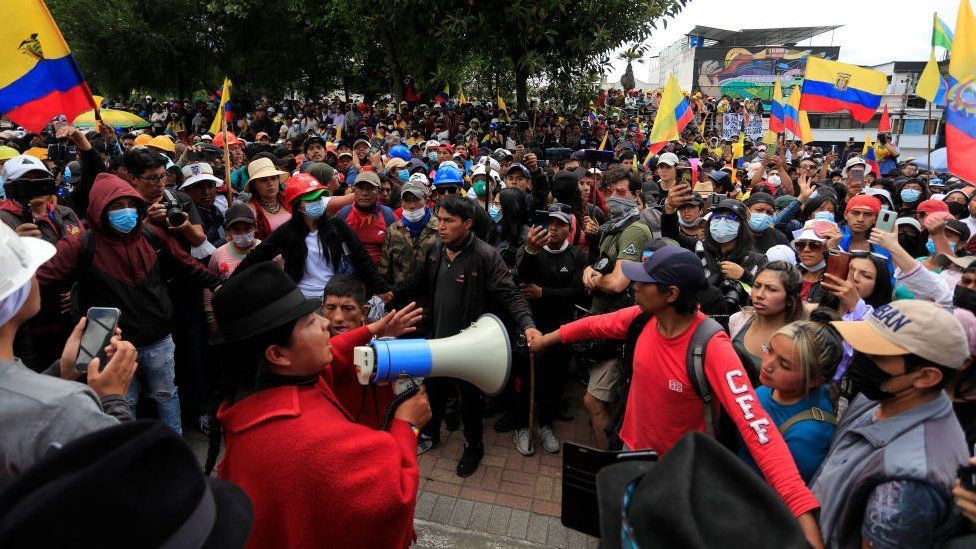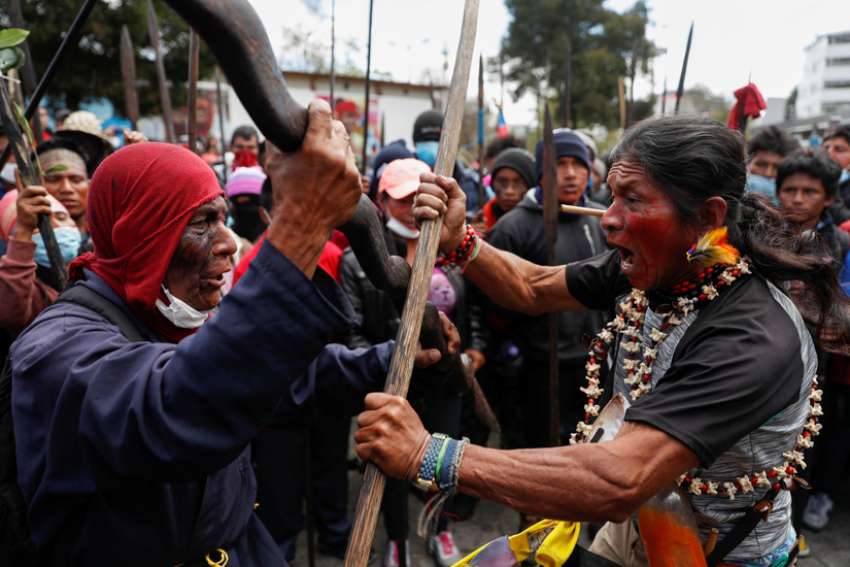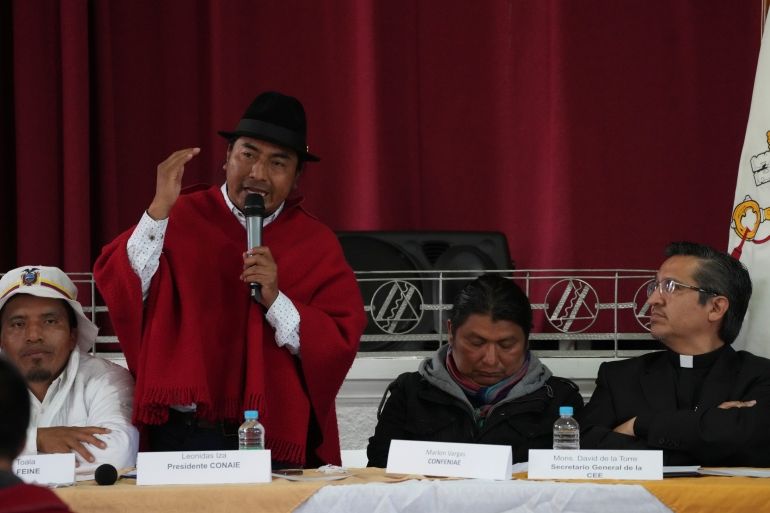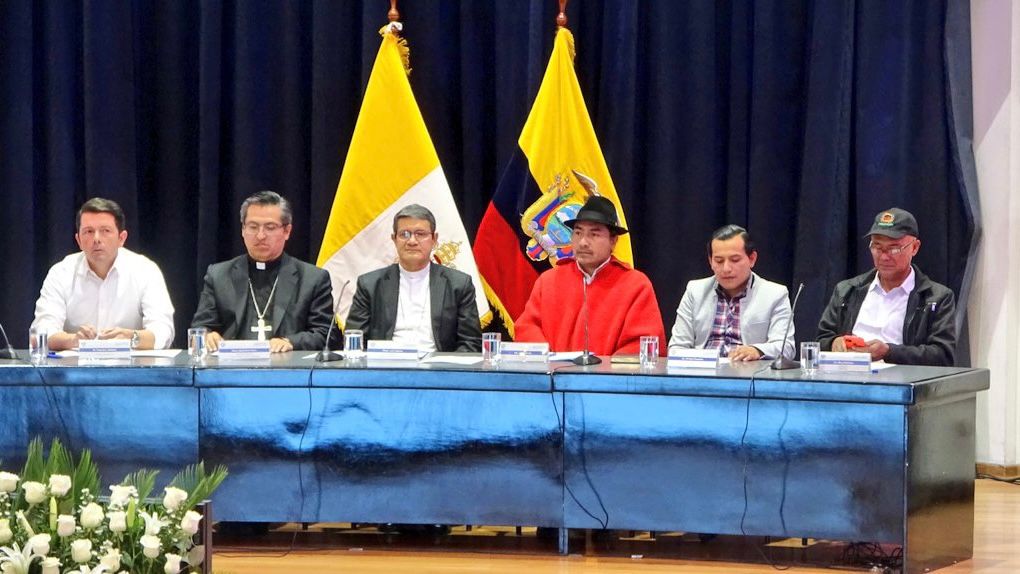After over two months, 90 days of restless patience and discipline have culminated into a historic moment for Ecuador, the negotiations between the Ecuadorian civil society and indigenous organizations and the neoliberal, conservative administration of President Guillermo Lasso over the remaining unmet people’s coalition demands have come to an end.
Since July 13, at the Ecuadorian Episcopal Conference (CEE) dialogues were exchanged to reach agreements that satisfy the civil society coalition, who leveraged the government to negotiations after organizing a successful national strike in early June to pressure the state to meet their 10 principle demands, which sought to steer the state power in an effort to better regulate enterprising liberties and institutional policies from drowning the economy and the popular masses during today’s global recession, crisis. At the behest of the Confederation of Indigenous Nationalities of Ecuador (CONAIE), the National Confederation of Peasant, Indigenous and Afro-descendant Organizations (FENOCIN), the Council of Indigenous Evangelical Peoples and Organizations of Ecuador (FEINE), the main organizers of the national strike, the government passed some of the coalition’s demands, “The demands included the reduction and freezing of fuel prices; allocation of greater budget for public education and health sectors; provision of employment opportunities and labor guarantees; putting an end to privatization of public companies; introduction of price control policies for essential products; protection to people from banking and finance sectors; provision of fair prices for agricultural products; an end to drug trafficking, kidnappings and violence; bans on mining and oil exploitation activities in Indigenous territories and near water resources; and respect of the collective rights of Indigenous peoples and nationalities.”

Although essential demands were being met, the coalition and the masses were not satisfied with the compromises, more demands needed to be fought for and implemented, so the coalition pushed into negotiations and dissipated the national strike, since by early July they already had the government by the neck.
At the recent dialogues, the two forces ‘reached’ agreements on 200 issues and questions, some of which are the "signed five agreements on the demand concerning price control policies, six on public and private banks, ten on energy and natural resources, 20 on productive development, 33 on security and justice, and 55 on collective rights”; 44 agreements on the health sector, 17 agreements on labor and employment, and partial agreements on fuel subsides and public education.
All throughout the process bitter sweet advancements were made, such as “the government agreed to forgive small loans of up to 10,000 USD taken by small farmers from public banks, while they rejected applying the same policy to loans with private banks. They also pointed out that there are still no agreements on ending criminalization of social protests.’
However regardless of how many agreements the coalition gained, on the last day of negotiations, the coalition organizations refused to signed the remaining agreements.

“CONAIE’s president Leonidas Iza Salazar said that “in two negotiation spaces, there are no agreements: the labor rights and fuel subsidies, we request the Government to make its position more flexible. Salazar added “there is no agreement on labor flexibility and the violation of workers’ rights.” He explained that there is no agreement on the reinstatement of doctors who were dismissed during the pandemic. He said that we demanded that the price of fuels for the population linked to agriculture and the rural areas be further reduced, this was also not accepted.”

Unexpectedly, the state would not budge and concede to these few fundamental demands, so CONAIE along with the other organizations in the coalition will continue to organize against the state.
On the partial agreements and small victories that were solidified at the negotiations, Salazar said “the responsibility for the implementation of the results of the dialogue process falls on different State institutions,” and that “the indigenous movement and social organizations will follow up [on their implementation].” (People’s Dispatch)
More strikes and future negotiations are to follow, so keep your eyes open. The struggle for a better life in Ecuador continues.

